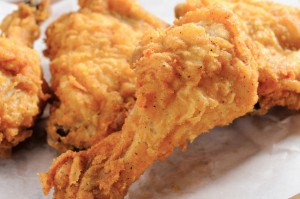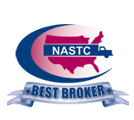 Eggs, milk, sugar, salt. They are classic commodities, products so uniform in quality that you can’t tell the difference between one company’s product (or service) and another. Commodities are sold based on price with increasingly thinner margins. And, over the past several years, many in our industry have bemoaned the commoditization of transportation logistics.
Eggs, milk, sugar, salt. They are classic commodities, products so uniform in quality that you can’t tell the difference between one company’s product (or service) and another. Commodities are sold based on price with increasingly thinner margins. And, over the past several years, many in our industry have bemoaned the commoditization of transportation logistics.
The way I see it, this is a glass half-full/glass half-empty quandary. One could argue that every product and service is a commodity just as easily as one could argue that no product or service is ever truly a commodity. Want proof? I’ve got two perfect examples: salt and chickens.
When Morton Salt was founded in 1848, salt really was a commodity. It was sold loose, in bags, and would quickly become hard and lumpy, especially in warm damp climates. Sixty-six years later, Morton found a way to differentiate its salt from the competition. They introduced a distinctive 26 oz. round container with a pouring spout. To further encourage the idea of easy-pouring, free-flowing salt, they added an illustration of a little girl sheltered under a large umbrella. The drawing was accompanied by the slogan: ‘When it rains, it pours‘.
To this day, Morton Salt is the number one brand of salt sold in the US. For every two cans of salt sold, one is Morton’s, even though it sells at a $0.20 price premium over other brands and private labels.
Years ago Frank Perdue decided to breed chickens in a way that would allow him to guarantee their tenderness. His slogan became: “It takes a tough man to breed a tender chicken“. He may be tough, but he’s also smart. Today, Perdue branded chickens hold a 30% market share on the East coast and sell at a 10% premium over unbranded chicken. Perdue says: “If you can differentiate a dead chicken, you differentiate anything!”
Pam Carrier, one of our star carrier sales reps, was recently doing a standard quality call with a regular customer. As she asked questions like: “Are we doing a good job? Are you happy with our service? Are there any areas where we can improve?“, our valued customer explained what differentiates us from our competition: “I get a lot of sales calls”, he began, “and sometimes, their rates are cheaper. But…”, he continued, “they don’t have a Pam”.
His message was that he was willing to pay a little more to get the job done right. He recognizes that Pam and all of our team members deliver value, not necessarily the lowest cost. To quote the professional speaker Jerry Fritz: “You’ll never have a product or price advantage again. They can be easily duplicated, but a strong customer service culture can’t be copied.” Business trainer Jeffery Gitomer, said: “Customer satisfaction is worthless; customer loyalty is priceless.”
We’re grateful that we’ve earned that customer’s loyalty. And, if you subscribe to the notion that transportation is a commodity, then we’d have to say that based on this story, he is even more loyal than the Pope:
The CEO of Kentucky Fried Chicken manages to arrange a meeting with the Pope at the Vatican. After receiving the Papal blessing, he whispers, “Your Eminence, we have an offer for you. Kentucky Fried Chicken is prepared to donate $100 million dollars to the church if you change the Lord’s Prayer from ‘give us this day, our daily bread’ to, ‘give us this day, our daily chicken’.”
The Pope responds, “That is impossible. The Prayer is the word of the Lord. It must not be changed.” “Well,” says the CEO, “we anticipated your reluctance. For this reason, we will increase our offer to $300 million dollars. All we require is that you change the Lord’s Prayer from ‘give us this day our, daily bread’ to ‘give us this day, our daily chicken’.” Again, the Pope declines.
The KFC CEO continues, “Your Holiness, I respect your adherence to your faith, but we do have one final offer. We will donate $500 million dollars – that’s half a billion dollars – to the great Catholic church if you would only change the Lord’s Prayer from ‘give us this day, our daily bread’ to ‘give us this day, our daily chicken.’ Please consider it.” And he leaves.
The next day the Pope convenes the College of Cardinals. “There is some good news,” he announces, “and some bad news.”
“The good news is that the Church will come into $500 million dollars.”
“And the bad news, your Eminence?” asks a Cardinal.
“We’re losing the Wonder Bread account.”
Here’s to a finger-lickin’ good weekend,
~Bob








